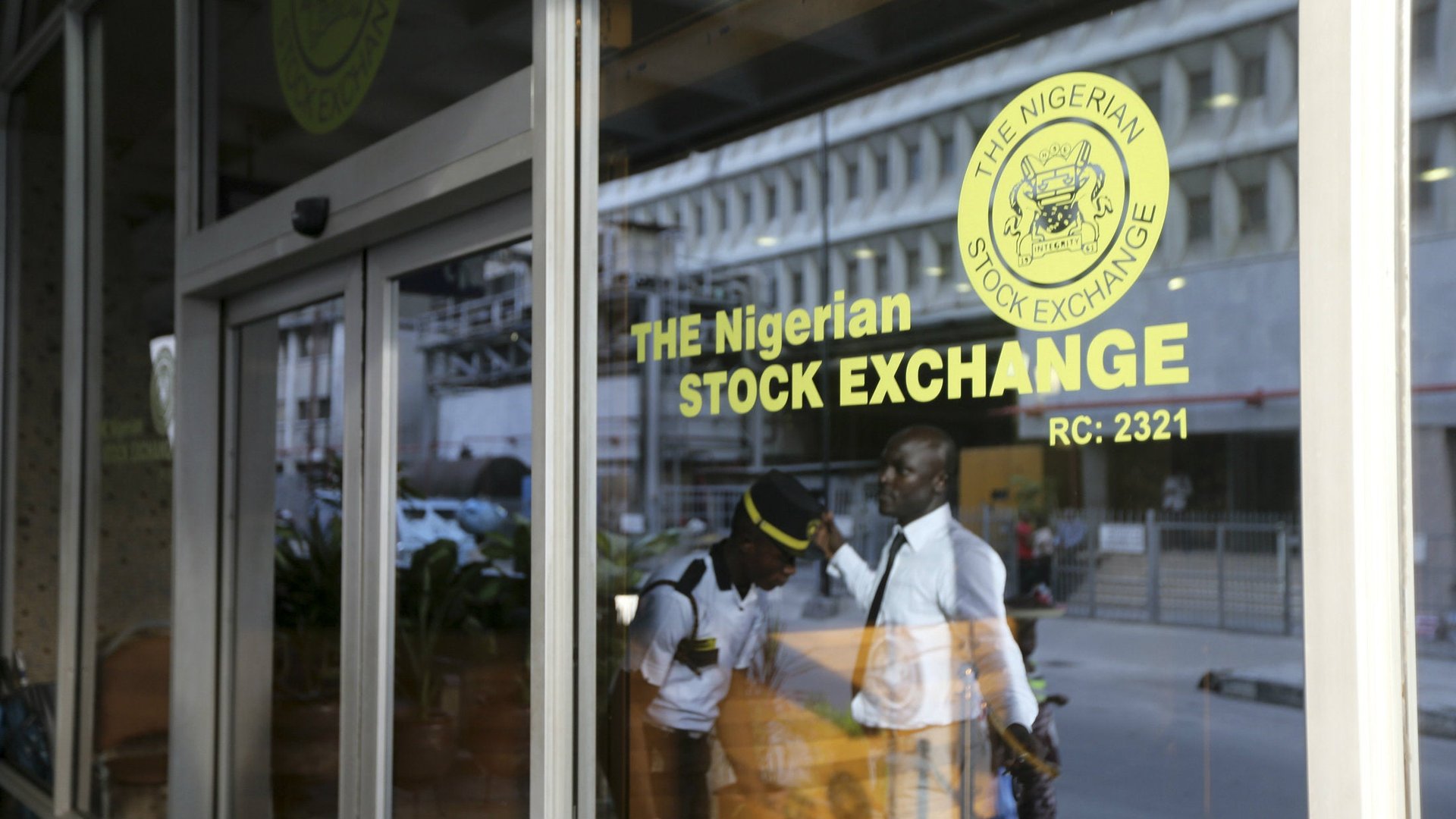Investors are dumping Nigerian stocks as sub-$30 oil looms and the naira tanks
An economic crisis is brewing in Nigeria as the stock market fell to its lowest point in three years this week. Investors have dumped stocks in reaction to uncertainty in Africa’s biggest economy leading to a 3.6% drop yesterday (Jan. 13).


An economic crisis is brewing in Nigeria as the stock market fell to its lowest point in three years this week. Investors have dumped stocks in reaction to uncertainty in Africa’s biggest economy leading to a 3.6% drop yesterday (Jan. 13).
The reaction has been mostly triggered by the continuing fall in oil prices. On Tuesday (Jan. 12) oil prices fell below $30 per barrel for the first time in twelve years. Nigeria has been particularly hit by the oil price crisis as the resource contributes more than 70% of its earnings.
“The major factor is the oil price that has weakened further,” Pabina Yinkere, analyst at Vetiva Capital Management Ltd told Bloomberg. “That has implications for the nation as an oil-dependent country. It has created a heightened risk environment.”
The ‘heightened risk environment’ has been exacerbated by Nigeria’s Central Bank’s currency policies. Faced with falling external reserves, the apex bank set up strict foreign exchange restrictions which were criticized as they badly affected lives of Nigerians. Those restrictions were lifted recently but the Central Bank’s decision to stop selling dollars to foreign exchange local dealers has resulted in even more instability in the market.
The stock market crash will, again, raise questions on Nigeria’s economic policies over the last few months as the Central Bank governor, Godwin Emefiele, is thought to base key monetary policy decisions on political preferences of the government rather than economic realities. A key example is that Emefiele has so far put off a currency devaluation—a policy decision championed by president Muhammadu Buhari.
However, with parallel market rates now hitting 300 naira per dollar, as opposed to the official bank rate of 199 naira, the Central Bank will come under renewed pressure to devalue its currency. ”With pressure on foreign reserves and oil prices at $30 per barrel, devaluation is now unavoidable.” Samir Gadio, head of strategy at Standard Chartered Bank told Reuters.